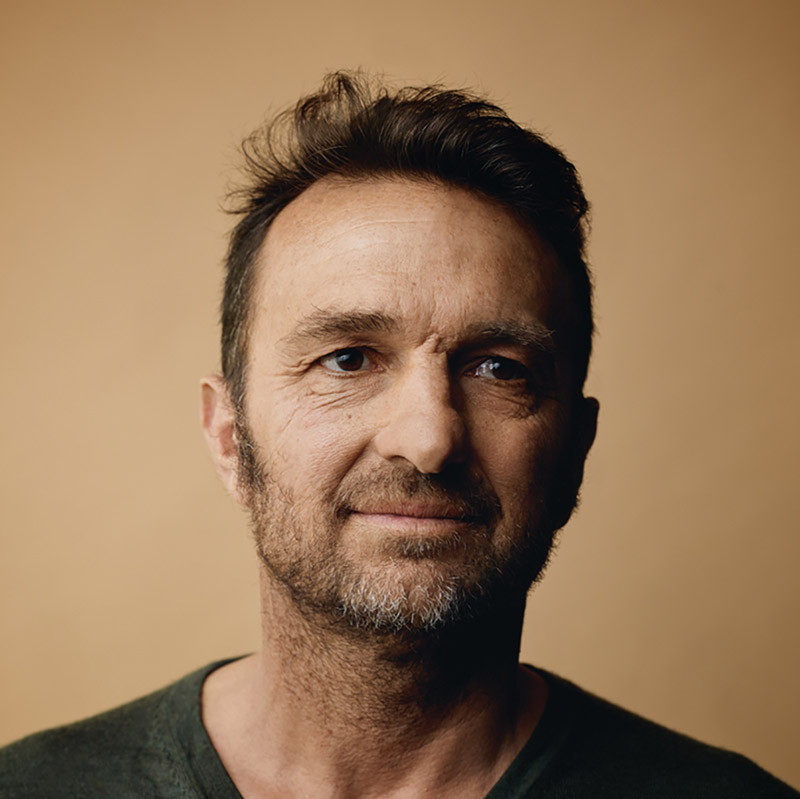29 December 2022
By Tim Baker
One benefit of writing a cancer memoir, despite the undesirable prerequisite of having cancer, is that it can open up all sorts of unexpected and stimulating opportunities.
Thus, I find myself meeting for coffee with Geri McDonald, Peter MacCallum Cancer Centre’s head of Well-being (any cancer centre that features such a job title gets a big tick from me from the outset). Geri’s as delightful as her job title suggests and I don’t know if it’s possible to fall in love with a building, but it’s too late. I already have. I’d come here for my holidays if they let me.
Surrounded by the exquisite white curves and timber panelling of Peter Mac’s spectacular atrium, more reminiscent of a modern art gallery than a hospital, I quickly realise this is cancer care done differently. And while we can’t all travel to Peter Mac for our treatment, there are lessons here that might inform clinicians, patients and administrators alike in developing a more humane and compassionate cancer treatment paradigm.
Peter MacCallum’s stated and ambitious aim is to provide the best cancer care in the world, which might sound grandiose until you get a glimpse into their inner workings and culture of excellence. Apart from the stunning architecture and dedicated staff, the Well-being centre, sleep pods, the roof top garden and massage clinic, the music room and fully equipped kitchen, one of the cornerstones of Peter Mac’s approach is its Patient Experience Strategic Plan. Based on extensive patient consultation based around what it calls its Patient Parliament, this impressive document helps guide a culture of continual improvement.
For all the fancy language and bold graphics, this really boils down to encouraging patient feedback, listening to it and acting upon it. There appears to be a general push to listen to the voice of patients more assiduously in cancer care and the health system generally, which is a welcome development, but does raise the obvious question: What were they all listening to previously?
But I digress. My key point here is that the findings from Peter Mac’s Patient Parliament and its Patient Experience Strategic Plan might provide some sign posts for other cancer hospitals hoping to elevate their standard of care and emulate Peter Mac’s global reputation for excellence.
For the sake of this process patients are known as consumers, which might strike some as an odd term, suggesting an economic imperative, but then some don’t wish to be defined as “patients”, so I understand this is a curly question. Regardless of what you call us, the findings are instructive.
The strategic plan identifies four overarching priority areas:
- Navigating your cancer experience.
- Personalising information/communication.
- Building capability.
- Building support networks.
Within those four areas, they then drill down further into five key aspects to implement to address each of these priorities (see diagram).

What jumps out at me here is that within three of the four priority areas, key aspects to work on include “greater staff sensitivity”. I’m someone who believes the vast majority of health care workers are altruistic angels, but it’s an interesting finding, even in an institution that offers an exemplary patient experience.
The obvious conclusion is that enhanced training in this area would go a long way to helping elevate the patient experience. Because for every time ten times a health care worker gets it right, the one time they miss the mark can be devastating for patients. We can be hyper sensitive and vulnerable through treatment so ill-considered words or a brusque manner can easily trigger latent grief and trauma. And, at the same time, kind words and a caring manner can make a remarkable difference. Maybe health care isn’t so different to life in this regard.
The other thing that jumps out at me is “support” features prominently, particularly “peer support” and the stunning notion that as people living with a cancer diagnosis, we can help ourselves, or at least each other. Expanding peer support requires building capability, some training and providing a forum where peer support can occur. I recall getting in a lift with a bloke who’d just received his cancer diagnosis attending his first treatment session with his wife and I just wanted to wrap them up and give them a quick primer on everything I’d learnt in seven years of living with cancer. There were only scant moments in a lift and a waiting room to exchange pleasantries and an opportunity was missed.
Greater sensitivity and support seem to be the key take aways here. As we all navigate the peaks and troughs of the festive season, not for the first time, what’s true in cancer care might equally apply to life.
About the Author

Tim Baker is an award-winning author, journalist and storyteller specialising in surfing history and culture, working across a wide variety of media from books and magazines to film, video, and theatre. Some of his most notable books include “Occy”, a national bestseller and chosen by the Australia Council as one of “50 Books You can’t Put Down” in 2008, and “The Rip Curl Story” which documents the rise of the iconic Australian surf brand to mark its 50th anniversary in 2019. Tim is a former editor of Tracks and Surfing Life magazines. He has twice won the Surfing Australia Hall of Fame Culture Award.
Tim was diagnosed with stage 4, metastatic prostate cancer in 2015 with a Gleason score 9. He was told he had just five years of reasonable health left, but seven years on, at 57, he’s still surfing, writing, and enjoying being a dad. His latest book, Patting The Shark, also documents his cancer journey and will be published in August. Tim will be sharing weekly insights into his journey to help other men who have also been impacted by prostate cancer.
